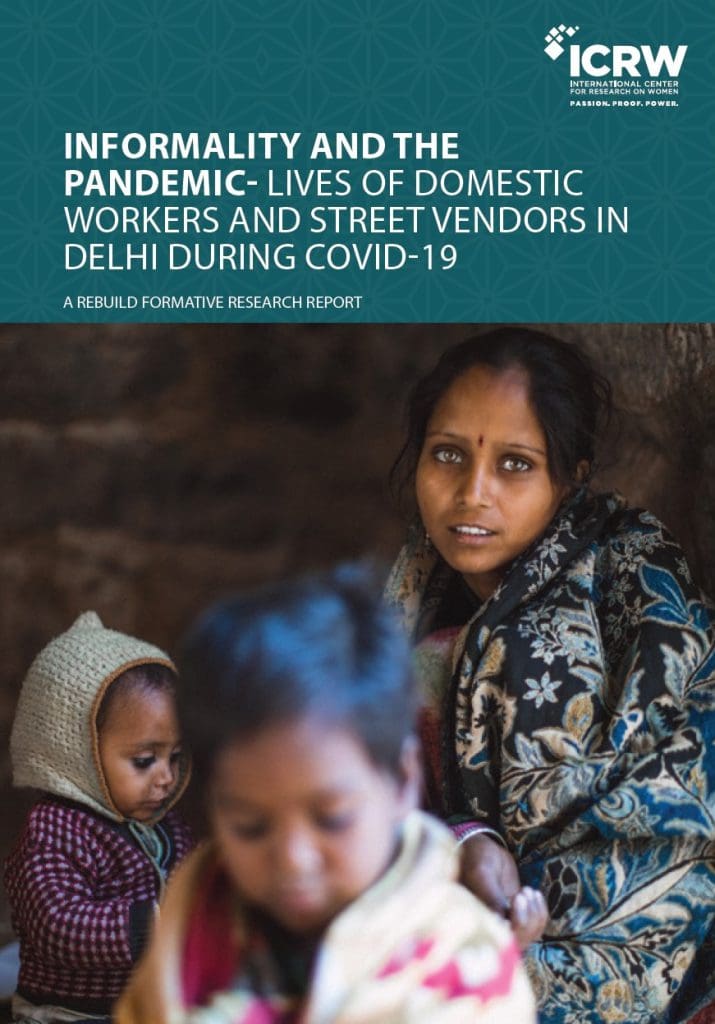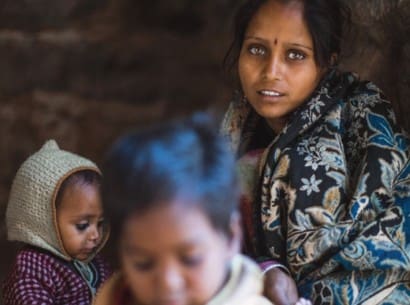
Informality and the Pandemic – Lives of Domestic Workers and Street Vendors in Delhi during COVID – 19
Care economy, Economic Opportunity & Security, Employment and Enterprises, Family Planning, Financial Inclusion, Gender-based Violence, Health, Intimate Partner Violence, Men and Masculinities, Mental Health, Migration, Peace & Security, Reproductive Empowerment, Sexual and Reproductive Health and Rights, Sexual Violence, Social Protection, Violence Against Women and Girls, Women in the Value Chain, Women Peace and Security
A Rebuild Formative Research Report
2022
 COVID-19 has deepened existing social inequalities and heightened the risks for economic precarity, gender based violence as well as aggravated the lack of access to sexual and reproductive health and rights, among marginalized groups. As countries move to mitigate the health costs of the pandemic, the policy choices they made carry economic and social costs largely borne by vulnerable and low-income populations, among whom women are the most affected.
COVID-19 has deepened existing social inequalities and heightened the risks for economic precarity, gender based violence as well as aggravated the lack of access to sexual and reproductive health and rights, among marginalized groups. As countries move to mitigate the health costs of the pandemic, the policy choices they made carry economic and social costs largely borne by vulnerable and low-income populations, among whom women are the most affected.
In the current research, which is part of the Rebuild project (Rebuild-COVID-19 and Women in the Informal Economy in Kenya, Uganda and India, 2020) ICRW takes an intersectional approach to understand the interaction of COVID-19 related health and economic shocks, and the policy responses with pre-existing gender and other social norms impacting livelihood, experiences of GBV and SRHR outcomes for women who work in the urban informal economy. This report is based on a formative research conducted in the National Capital Region of India.
The formative research attempts to answer the following:
- What were the most crucial areas of vulnerability for informal women workers in urban centres that were most influenced by the policy responses during COVID-19 (after March, 2020)? How were these areas of vulnerabilities impacted by the second wave of COVID-19?
- What were some mechanisms and resilience strategies adopted by women to cope with these vulnerabilities?
- Were the urban governance infrastructures and implementation mechanisms effective and accessible for the delivery of these COVID-19 relief measures?
- What were the alternative/informal mechanisms that emerged to help address the vulnerabilities and who were the key actors and networks that got activated in absence of state support?
This formative research captured the experiences of a variety of women workers, throwing light on the differential experiences of different occupational categories during the pandemic. The upcoming primary research intends to take this analysis forward, focusing specifically on the differential experiences of street vendors and domestic workers and further exploring the scope for a comparative study between the two groups, using both quantitative survey analysis and qualitative narratives/case studies.
DOWNLOAD THE PUBLICATION BELOW
The learnings documented in this publication were collated as part of a three-country research study undertaken by ICRW Asia, REBUILD: COVID-19 & Women in the Informal Economy in Kenya, Uganda & India, with the support of the Bill & Melinda Gates Foundation and the International Development Research Centre. The facts and information in this report may be reproduced/quoted/cited only for non-commercial use and with appropriate attribution

